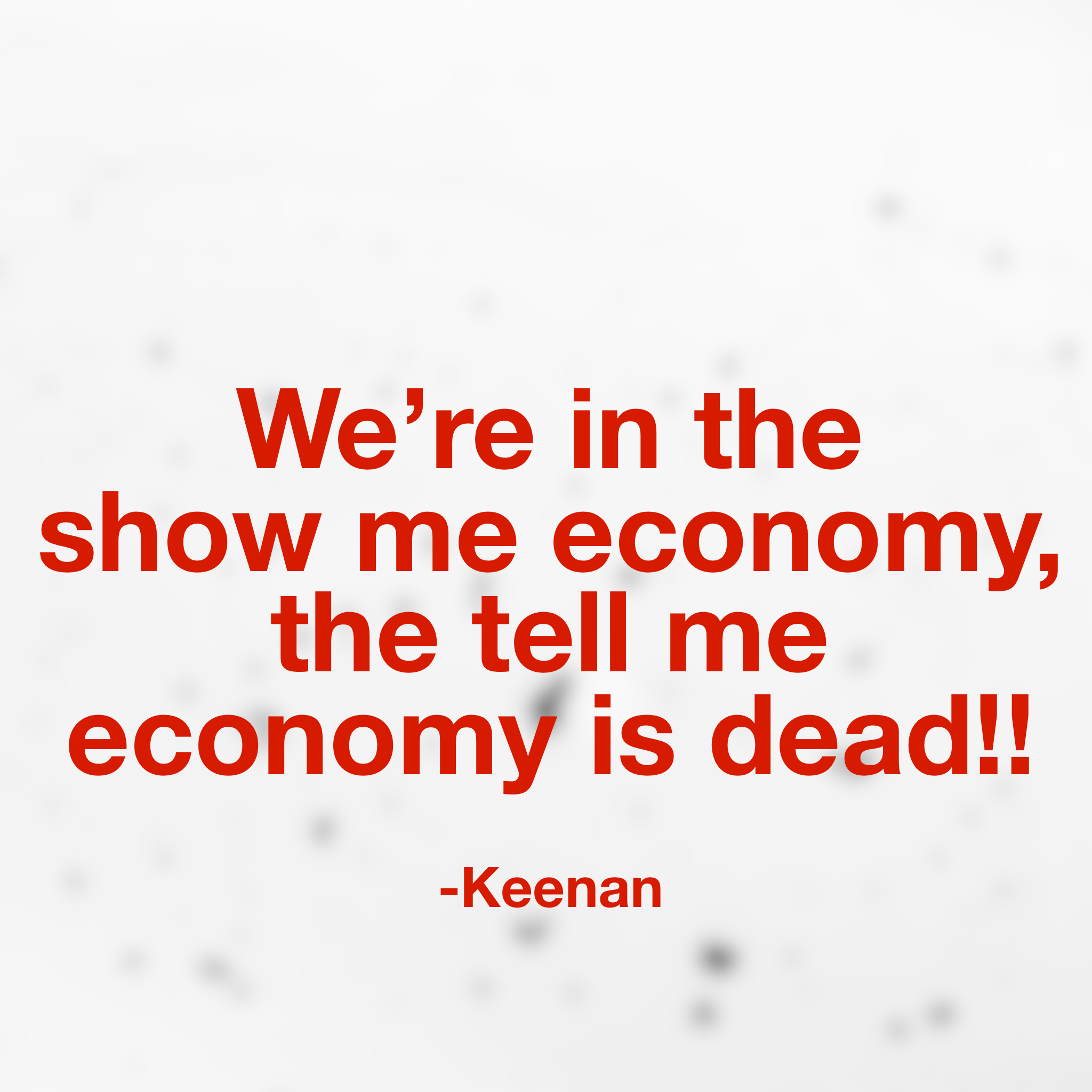The tell me economy consists of expressions of your worth and capabilities. It’s your resume, your static LinkedIn profile, a referral from a friend, your personal elevator speech, etc. The tell me economy is how we used to promote ourselves. We or someone we know would tell everyone how good we are, how we need to be hired, booked, connected or whatever. Telling was how we promoted ourselves and one another.
The telling economy is dying and it’s being replaced by the show me economy.
Up until recently, we had to tell people who we were, why we were good and what we knew. It was too cumbersome to show people. There was no WordPress or LinkedIn Pulse or Slideshare, etc.
But now, showcasing you and your work is easy and expected.
Increasingly hiring managers want to see what you’ve done, they want to see proof of what you know. If you’re in sales and you say you use social selling, they want to see it, it’s not good enough to just tell them.
We expect proof today. Anyone can tell you why they’re good, but showing it, that’s a different ball game. We’re less confident in peoples expressions of skills. We want to see it.
If you aren’t showing your work, fewer and fewer people are going to care what you say.
The tell me economy is dead.
Welcome to the SHOW me economy.


Jim,
Leadership development, as a primary area of focus is, in my view, the most important differentiator between highly performing organizations and those that lack competitive edge. Naturally customer centric programs are critical but without a clearly defined process to consciously identify, groom and develop leaders from within the very best product and customer focused companies will not be able to withstand the internal void left from inadequate leadership development. You are right they do not cost a dime – but they require leaders that think like real leaders. Those company leaders tend to identify themselves, through their actions, as individuals who teach others to lead, teach and do their job better than they do it themselves.
Jim: Great post—one correction, it’s Wally Bock–a fantastic thought leader in all things about leadership and strategy. Interesting concept to consider though, a mind meld between Wally and me? I’m the weak link, though.
Regards, Dave
Those are excellent points. Thanks for building on my post. And thank, Dave, for the idea of mind melding. I figure I’d be the winner there. I’d be a way better salesperson.
To leadership development for a minute. I have no science to back this up, but I believe the thing that makes the difference is senior managers understanding leadership development as a big part (a third?) of their job. When that happens, other good things start to happen.
It was a great post Wally!
Leadership is the art of getting someone to do something you want done because he wants to do it. Your blog is really very helpfull.
Leadership development training
Many thanks Jim, It’s difficult to SHOW you how I enjoy your posts, I normally TELL you. Thanks Barry.
Barry, showing is easier than you think. Showing can be done by inviting others to read the blog, by commenting like you do, by sharing posts on other sites, etc. Showing is taking action, not just talking. Your continual engagement shows a lot. 😉 Thanks baby!
Interesting. I get “show me” for what you have written publicly on a blog, events that you have created both inside and outside of your job however hard sales achievements aren’t always that easy to share because they often involve proprietary details on deals done (3rd party company names that require their permission to use, dollar amounts etc) or private details on w2 achievements etc that people don’t necessarily want out there. What do you suggest in this case? Try and push for case studies on your clients that can be shared publicly? Any other ideas?
Kenny,
I often talk/blog about clients, without having to give away “identifying” info. There is nothing that prevents you from describing a sale, how you built the deal strategy, the objections and challenges you faced, how you overcame them, why you chose the strategy you did etc. without ever giving away who it was/is.
Also, you could package what you did into a lesson about how to sell. For ex: If you closed a huge deal that had multiple buyers, and a difficult CEO, rather than tell the story of that company, teach. Create a blog post or video called “Five Steps to Close a Huge Deal When The CEO Isn’t On Board.” Then share the challenges, the issues and the lessons. You can do this without ever having to share the “real life” story behind the lessons.
I hope this helps bro.
//keenan
Cheers Keenan